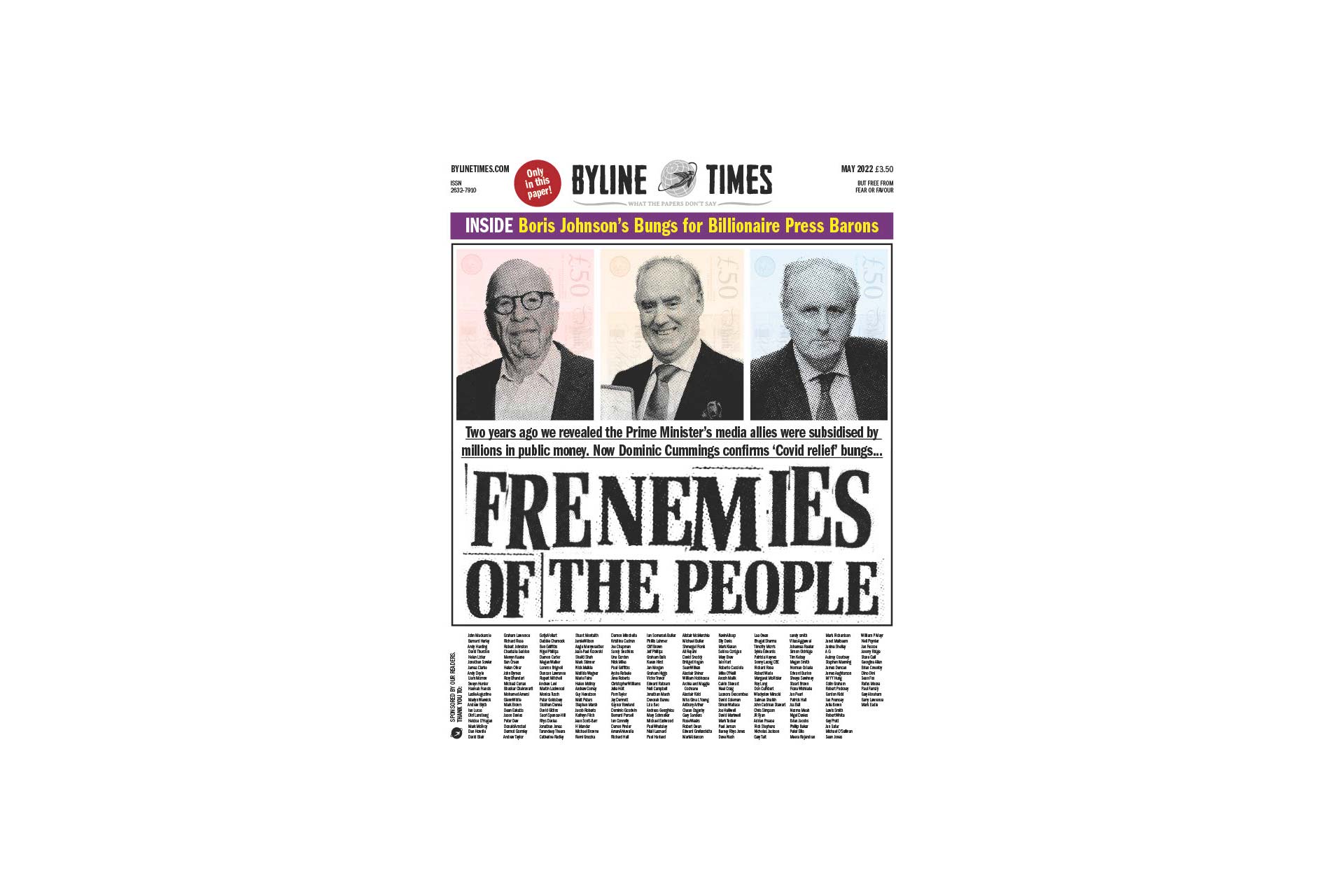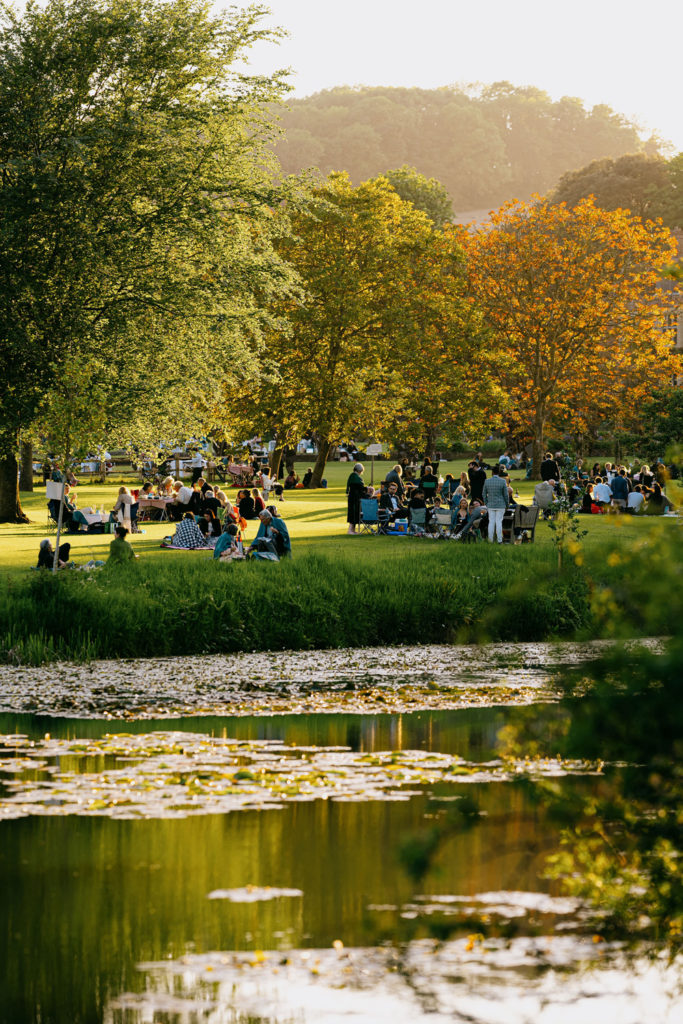Meet Hardeep Matharu, Founding Editor Of Byline Times
By
2 years ago
What they don't tell you

Kamin Mohammadi meets Hardeep Matharu, the founding editor of Byline Times, an independent newspaper with a mission to tell you what the mainstream media won’t.
Interview With Hardeep Matharu

When Hardeep Matharu graduated from Cambridge University armed with a degree in law, instead of heading to the law courts of London, she got a job as a cub reporter on a local paper. She cut her teeth the old-fashioned way, working in local, national and independent media, before becoming the launch editor of Byline Times. ‘It was really old school, because I wanted to learn the craft of what it was to have a patch that you work on and go out and get to know a community. I ended up editing the local newspaper.’
Byline Times is an independent newspaper and website with the strapline ‘What the Papers Don’t Say’. First published in March 2019, it is the brainchild of founders and executive editors Peter Jukes and Stephen Colgrave, who originally floated the idea of an independent journalism site in 2016, with the launch of Byline.com, a crowdfunded platform for journalism that had no editorial line or agenda. This itself was inspired by the many months that Peter Jukes spent reporting from the phone hacking trials, a personal mission to bring the truth of what the big newspapers were doing to light, eventually accomplished with the help of donations from ordinary people who valued Peter’s unbiased reporting on Twitter.
The passion for independent and impartial journalism led Jukes and Colgrave to expanding their activities to the UK’s first independent journalism festival, a unique mix of lively debate, interactive workshops and brilliant live music in a magical site in the verdant English countryside. Over three days, people flocked to hear top journalists, writers and thinkers discuss the issues that are ignored, under reported or simply misreported in the mainstream media, be entertained by the likes of John Cleese and Alexei Sayle and rocked by the music of Pussy Riot.
‘By the time I met Peter and Stephen,’ Hardeep recalls, ‘I had worked on both local and national papers and they said to me: “We think there needs to be a new news site, a publication, to plug the very real gap that is emerging with fake news. You know how to edit a newspaper and news site,” and I said I guess so…’
And so, in an era when the death of print is regularly announced, the trio launched a new independent newspaper. Backed by the daily news site that rolls out five stories a day and remains free to its one-million users, the Byline Times is a print newspaper that lands monthly in the letterboxes of its 28,000 subscribers.

‘When we launched Byline Times everyone said we were crazy to put out a print publication when established titles are seeing sales fall,’ laughs Hardeep. ‘But Byline Times has a very specific purpose, it is not trying to be another regular newspaper. The idea was to take elements of the crowdfunded site in the subscription model and the fiercely independent journalism from the festival to cover what the other papers don’t say.’
This is how the paper has been positioned from its launch: Byline Times does not follow the news cycle but instead investigates and probes areas that other papers tend to ignore and gives voice to those who are often marginalised – Hardeep is especially proud of Byline Times’ disability coverage. It delves into the real reasons behind the news and in doing so holds the Government and the establishment to account.
Probably the best-known example of a story that it broke is the PPE scandal, exposing the cronyism and waste surrounding the Government’s procuring of PPE during the Coronavirus crisis, which led Byline Times to be quoted in Parliament. This is not the only time that it’s been mentioned in the centres of power – after Peter Jukes supported and collaborated with the Observer’s Carole Cadwalladr on the ground-breaking story of Cambridge Analytica, the data analytics firm that hacked millions of Facebook accounts to help sell Brexit, the then deputy leader of the Labour party Tom Watson asked questions in the House after attending her talks at the Byline Festival.
‘There is so much that is not reported or underreported that the mainstream press cannot – or choose not – to report on,’ declares Hardeep, ‘including the crisis in British journalism, which I think is really feeding into our society and politics. There is an entire power block in this country that goes unreported on.’ And Byline Times can do that by being outside the system and not beholden to billionaire proprietors or outside influence nor does it trade access for independence. It is only responsible to its subscribers.
As well as looking behind the news, Byline Times provides new perspectives on Britain’s political landscape, often years before the zeitgeist catches up. Two years before the BLM movement led global debate about race and imperialism after the murder of George Floyd, and the Edward Colston statue was brought down in Bristol, Byline Times was the first to explore how the legacy of the British Empire was at the heart of dynamics playing out between minority communities, immigration and recent developments such as Brexit. This was Hardeep’s own ongoing work on Brexit and Empire, the result of her being the daughter of Sikh Punjabi immigrants from British Kenya and India and her interest in identity as well as social justice.
As with any media company now, Byline Times extends its brand through Byline Radio, Byline TV, a podcast and a Byline Supplement through Substack. And after its absence during the pandemic years, the popular Byline Festival is back this summer at Dartington Hall in Devon, where the manifesto for Clement Attlee’s 1945 Government was written.
‘With the paper, we wanted to try to connect the dots and reveal the structural issues, as well as feature independent reporting on what is happening. We firmly believed that there was an appetite for this,’ Hardeep says. ‘And thankfully we have been proved right!’
That success can be attributed to this transparency that Byline Times champions. ‘We say what we do on the tin, we say we are independent and outside the system, which,’ Hardeep laughs, ‘doesn’t mean, you know, that we are anarchists! True independence comes only when you don’t have rich proprietors, take government subsidies, you don’t take adverts, so we are truly independent. And I always say as an editor, when we stop doing that, then people should stop subscribing. Because what they come to Byline Times for is not only independence in terms of its journalism, but an independence of mind. We don’t tell people what to think. We give information, analysis, commentary and invite people to think about them, to inform themselves, to feel a stake in this society.’
Hardeep pushes her point home. ‘If journalism is to be the fourth estate, then it should be trying to create an informed citizenry. And I think what’s going wrong with so much journalism today is it’s doing the opposite. We have more and more news, but I don’t know how informed people are in terms of how it affects their lives. So that is the real spirit of Byline Times. Independence, integrity, being fearless and holding power to account.’ And that is what Byline Times, funded by its readers, is uniquely placed to do.
Country & Town House is launching a C&TH x Byline feature series from the September/October issue, where editor Hardeep Matharu will select one thought-provoking Byline investigative or cultural read focusing on the issues of the day to run in C&TH. byline.com



